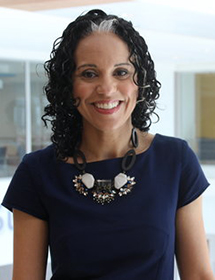
Breadcrumb
- News and Events
- News
- Content
- RI-MUHC-led study aims to help adolescents with type 1 diabetes transition to adult care
null RI-MUHC-led study aims to help adolescents with type 1 diabetes transition to adult care
Group education visits offer peer support as well as interventions by nurses, MDs and dieticians

Dec. 17, 2019
Source: RI-MUHC. In a recent issue of the journal BMJ Open, a study team led by Dr. Meranda Nakhla, a researcher at the Research Institute of the McGill University Health Centre (RI-MUHC) and Montreal Children’s Hospital of the MUHC (MCH-MUHC), has tackled a conspicuous gap in diabetes care. Over the next five years her team will examine group education visits as an alternative and potentially cost-effective approach to providing transition care services to adolescents living with type 1 diabetes.
The time between childhood and adulthood is a challenging life stage for everyone, but adolescents with a chronic illness such as type 1 diabetes have an additional task: learning to take responsibility for their own health. As emerging adults with chronic illnesses, they will also move from pediatric to adult medical healthcare systems. This transition period disrupts diabetes care and puts young adults at risk of diabetes-related complications.
“Even though we know the importance of preparing adolescents for the transition to adulthood,” says Dr. Nakhla, who is also a researcher in the Child Health and Human Development Program at the RI-MUHC, “very few transition care services are being provided to adolescents with chronic illness, partly because we know little about how to provide these services to adolescents and emerging adults with type 1 diabetes, for instance. It’s an area in which research is sorely lacking.”
GET-IT-T1D aims to study whether group education visits better prepare emerging adults with type 1 diabetes for adult care and reduce their risk of complications as adults
The Group Education Trial to Improve Transition in Adolescents with Type 1 Diabetes (GET-IT-T1D), which Dr. Nakhla leads, was designed to meet this need.
GET-IT-T1D aims to study whether group education visits better prepare emerging adults for adult care and reduce their risk of complications as adults, as compared with usual care. The team is conducting a multisite randomized controlled trial of adolescents with type 1 diabetes (ages 16 to 18 years) followed at the MCH-MUHC and CHU Sainte-Justine pediatric diabetes clinics for five years.
Adolescents who are part of the intervention will take part in group education sessions followed by visits with their diabetes doctor every three months during the year before transfer to adult care. Group sessions will be facilitated by a diabetes nurse, dietitian and social worker and, as Dr. Nakhla underlines, the topics discussed will be patient-driven and relevant to adolescents with diabetes. Visits will be integrated into usual diabetes care.
“The goal of our study is to determine whether these group education visits, in which the adolescents receive peer support, will lead to better blood glucose control, fewer diabetes-related complications and better psychosocial outcomes,” says Dr. Nakhla, “when we look at results one year after the transfer to adult care.
“We want this first randomized trial to serve as a foundational step guiding the development of transition care services,” she adds, “not only for type 1 diabetes, but across all childhood-onset chronic illness.”
GET-IT-T1D is funded by the Canadian Institutes of Health Research. The trial is registered on ClinicalTrials.gov (Trial registration number: NCT03703440).
Learn more on BMJ Open